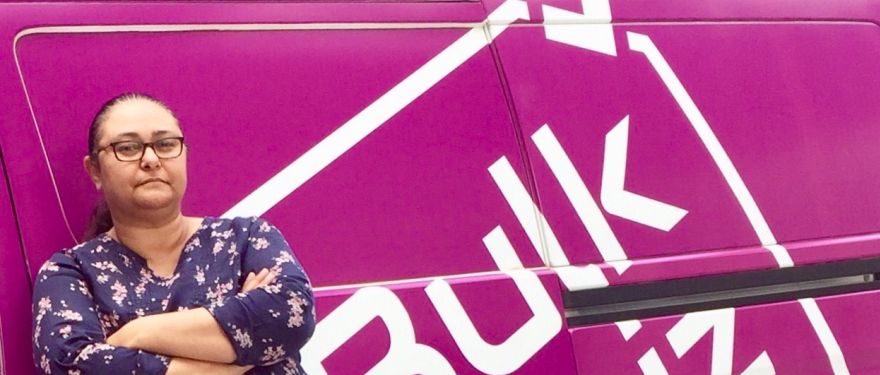After serving significant stints with Booz Allen, Yahoo! and Facebook, Amira Rashad (MBA 1998) can justifiably claim expertise in strategy, consulting, and social media. Although she regards her track record with pride, she sees herself more as a well-rounded switch hitter. "I have an ambidextrous mind," Amira says. "I'm equally comfortable with the details of ground-level execution as I am with the big picture, 30,000-foot, pie-in-the-sky vision."
In 2010, her personal and professional lives took a dramatic turn when her husband was offered the opportunity to manage Merrill Lynch's Middle East interests through its offices in Dubai. It was a two-year assignment, one that Amira embraced with enthusiasm. "It would be a great experience for us and the kids," says Amira.
But two months into their new lives, Amira realized, "There was no way I was going to be a trailing spouse for two years. Settling in, I was so irritated by not doing much." At a social event, she met a Yahoo! executive managing an Arabic portal the company had recently purchased in the region. Amira came on board with a mandate to shift the platform from text-heavy media to video. Along the way, she built the largest consumer research panel in the Middle East, and helped Yahoo!'s portal reach nearly 17 million unique users.
In 2014, Yahoo! shuttered its Middle East portal, and Amira joined Facebook where she worked closely with both SMBs and large enterprises to expand their brands in Middle Eastern markets. There, she arrived at a crucial insight: "CPG brands were spending big on equity advertising, but they could not directly link sales and ad buys to show ROI. I really felt there was a need we had to address – for an ecommerce platform partner that was data-friendly, that could show who bought what and why."
At the same time, Amira was undergoing a "parallel journey" in her personal life, acting as "a mom responsible for a household." There were no Costcos. Most people shopped in 'tiny, mom and pop stores' that were expensive. The few available supermarkets served as anchors in exclusive, upscale malls.
Bulk items plus precise data equals BulkWhiz
"It was my eureka moment," says Amira. "Why aren't there any value/bulk propositions out there?" The insight combined her personal interest in "good value" with her professional ambition to "close the data gap working with advertisers."
Amira arrived at a concept that would personalize the shopping experience by concentrating on the virtual shopping list, a personal convenience that recognized consumer need for repeat purchases while opening up data insights through artificial intelligence.
In May 2017, BulkWhiz was born in the United Arab Emirates. "It's a bona fide startup begun with funding from angels, then VC," Amira says. Today, BulkWhiz is an ecommerce CFP platform that serves 15,000 households; in November, Amira launched an extension of the platform for small and micro businesses.
In an unusual turn for an ecommerce business, BulkWhiz retains distribution and delivery. "The lifetime value of a CPG customer is…a lifetime!" explains Amira. "If you own the relationship and nurture recurring orders, the relationship is yours to lose. Handing over the last mile to someone else would be a big mistake."
Fortunately, bulk orders make it easy for BulkWhiz to justify deliveries. But it's the transparent data that gives the company its greatest advantage. "We use data to serve customers and to help us better understand them. Our vertical growth potential is immense; customers add more to their lists at no cost to us."
By focusing the consumer experience on the shopping list, "we know what the customer is going to buy 70 to 80 percent of the time," says Amira. That knowledge informs BulkWhiz's supply chain management, giving it purchasing leverage with suppliers. "But they win too by using BulkWhiz as a targeting platform. We merge online with offline data, adding exogenous factors, like the weather, to identify targeting opportunities based on customer behavior."
BulkWhiz is now raising Series A funding for three objectives: develop AI technology to "create regionally relevant data algorithms for emerging markets;" expand the business into bigger markets, such as Saudi Arabia and Egypt; and explore B2B opportunities "among smaller businesses that behave like larger households."
"It's a challenge," Amira says of leading a business "in a region not known for that. Being part of that cohort is challenging and rewarding. But there's very little pushback from investors because I am a subject matter expert in this space. To tell the truth, things are changing rapidly in a good way."

